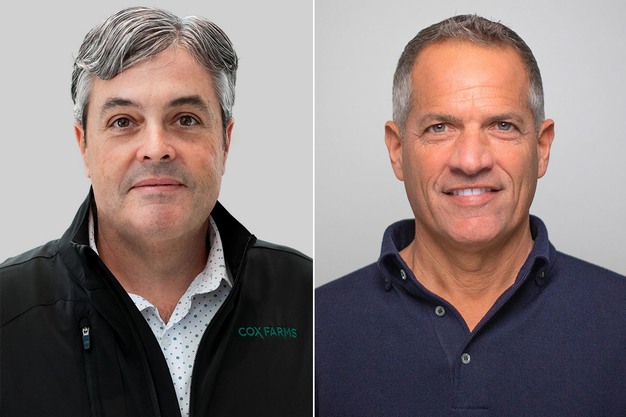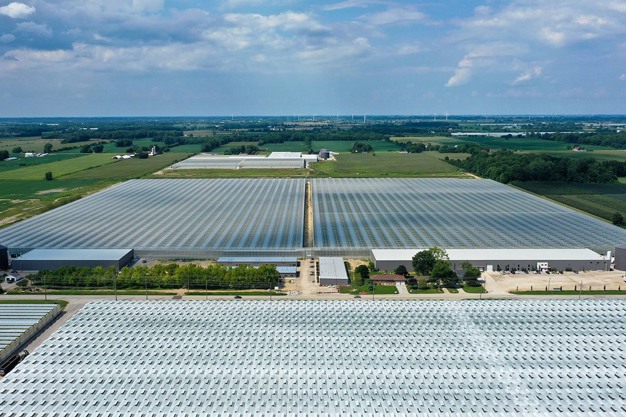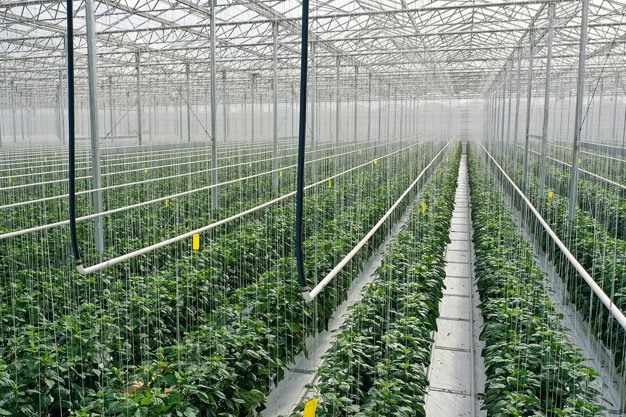In June of 2022, Cox Enterprises made an investment in Mucci Farms and recently, Cox announced its new business Cox Farms. Why did Cox invest in Mucci Farms and what does the investment mean for the greenhouse grower, its retail partners, and consumers?
James M. Cox founded Cox Enterprises 125 years ago. Over the years, the company has become a leader in the broadband, automotive, and media industries, as well as a leading investment platform with strategic positions in emerging technologies driving the future of agriculture, renewable energy, health care, and public sector software. Cox is a multi-generational family-owned business that has a mission to leave the world a better place by eliminating environmental impact on the planet. From that perspective, the family looked at opportunities to build a good, generational business for the next 125 years to come.
Why an investment in agriculture
"We were looking into many different spaces that had to make sense from a business perspective, but also fit with the family's passion and values of how to build a better future for the next generation," says Steven Bradley, President of Cox Farms. Energy, education, and (outdoor) agriculture were all explored. "We started with outdoor farming, but realized how difficult it is to build a meaningful business in that space due to the risks farmers are having to take."
Then, Cox Enterprises explored Controlled Environment Agriculture (CEA). "We found this space very interesting as it allows us to build a more resilient business model that is less dependent on Mother Nature compared to outdoor farming," said Bradley. Another benefit of CEA is to the ability to feed a growing population in a more efficient way. In addition, the working conditions are better and when adding in the human component of better tasting and higher quality food, CEA checked all the boxes for Cox. "All of these things together just got us really excited," said Bradley.

Left: Steven Bradley. Right: Bert Mucci.
Long-term partnership
Cox Enterprises started with a small investment in BrightFarms to gain experience. "This was our first step into the business," said Bradley. "We wanted to find out if it was possible to grow greenhouse produce profitably and if consumer demand was as great as we thought it was. Once both these boxes were checked, we were all in and started looking for a scale player in the space."
Bradley spent a lot of time learning about the broader CEA industry, and who the players and best operators were. "We were looking for a partner that would help us build a presence across North America, allowing us to elevate the relationship with retailers. It was our goal to become a one-stop-shop for retailers and help them with their overall strategy versus being a commodity provider," he said. That's the way to build a generational durable business.
Bradley knew that the Mucci Family had been involved in the business for multiple generations. At the time, Mucci Farms had just come out of a partnership with a private equity group and was looking for a good partner that would be in it for the long-term and could provide permanent capital. "The barriers to entry in this business are high," shared Bert Mucci, CEO of Mucci Farms. "We were looking for a long-term partner that was focused on the business and not in cashing out after five years." Mucci Farms was growing faster than its private equity partner could keep up with. "In Cox, we found a partner that fits our model," said Joe Spano, VP of Sales and Marketing at Mucci Farms.
"Ultimately, we were looking to invest in a company that sees the world the same way we do and has the same work ethic," Bradley said. "The common values Cox and Mucci shared resonated with me, and I felt we had a winning recipe that allows us to combine the respect Mucci Farms receives with the history and value of Cox." This is a multigenerational investment with everybody working together to continue Mucci Farms' growth.

Scale player
The goal of both Mucci Farms and Cox Farms is to have a full North American growing and distribution network. "It will help us in becoming more efficient and we need scale in order to achieve this," said Bradley.
The companies truly want to offer their customers a geographically diverse experience, which requires different growing regions. Within these growing regions, a diversity of products is required to create surety of supply, which is one of the primary reasons to get in a retailer's door in the first place. "Scale helps us in that way and makes us more relevant to retailers. We want to be a strategic partner for the retailers and ask them about their strategy and how we can help them be successful in the execution of that strategy. If we would only be able to service a certain portion of a retailer's location, we would be viewed more as a commodity provider. The great news is that we've already started seeing those conversations change," Bradley mentioned. "We are able to service from Mexico, Canada, and the U.S. Just tell us your strategy, and we will figure out how to best meet the retailer's needs," Bert Mucci added.
Multi-generational family business
While scalability is important, Bert Mucci emphasizes the company doesn't necessarily want to become the biggest player in the greenhouse industry but wants to be the best. Cox is in it for the long haul. "We truly see this as a business that can be built upon, and will be around for generations to come, a business both Mucci and Cox can be proud of," Bradley said. "That's what we are building, a multi-generational family business."
Mucci Farms branding
What does Cox's investment mean for the Mucci Farms brand? "We're not changing the essence of the brand at all," said Bradley. Over the years, Mucci Farms has built a strong brand in this space and Cox Farms is looking to continue to extend it with more branded products. "We want to create connective tissue across the brand and take advantage of the scale, logistics, supply chain, etc. We want to create efficiencies in our business and offer retailers the widest spread of products, especially products that drive margin and foot traffic," Bradley commented.

Sustainability
While the greenhouse produce industry already offers many environmental benefits, Cox will work on making the business even more sustainable. "There are lots of opportunities and we have a unique advantage point to make an impact," said Bradley. At Cox, we have over 30 Megawatts of alternative energy on our site, for instance. Farming in a more sustainable way will make us more efficient and allow us to run a better business."
It's about making a positive impact on the planet while building a more durable business that's going to be around for another 125 years. Bert Mucci and Joe Spano are very excited about the additional resources the partnership has provided, including marketing, legal, supply chain management and risk management. All of these back-office functions that Cox has developed over all the years of being a large-scale infrastructure operator allow Mucci Farms to create a more efficient business.
 While most major players in the greenhouse industry quietly work together with private equity partners or financing partners, Mucci Farms is proud of the relationship with Cox Farms and has launched a podcast that provides background information on the partnership and discusses the path forward.
While most major players in the greenhouse industry quietly work together with private equity partners or financing partners, Mucci Farms is proud of the relationship with Cox Farms and has launched a podcast that provides background information on the partnership and discusses the path forward.
 For more information:
For more information:
Ajit Saxena
Mucci Farms
Tel.: (+1) 519-326-8881
[email protected]
www.muccifarms.com










